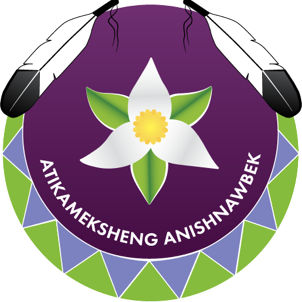Our Election – Our Way

Our Election. Our Way.
Be a part of our history. Act. Interact. Vote.
Atikameksheng citizens have spoken. With the adoption of the Atikameksheng Chi-Naaknigewin in 2015, and the ratification of the Gimaakeng Naaknigewin election code in February 2024, you have set the stage for the most historic and significant Gimaa and Council election in our community’s history.
For the first time, we truly are holding our election – our way.
Atikameksheng Election Day is Saturday, June 29, 2024
Online electronic polls open Monday, June 10th @ 9:00 am.
Find information on How To Vote
including online voting, mail-in ballots
or voting at the polling station on election day.
Act. Interact. Vote.
A Call to Action for all Atikameksheng Anishnawbek:
Act. – Visit the Elections page to learn more about the 2020 Election and the election code. Sign up to the Members Portal.
Interact. – Like us on Facebook and Instagram. Share information, opinions and stories. Use hashtag #OurElectionOurWay.
Vote. – Most importantly, exercise your right and get out and vote. You can cast your online electronic vote starting on Monday, June 10th @ 9:00 am. You can also send in your mail-in ballot or vote at the polling station on June 29, 2024. Conventional voting instructions can be found here.
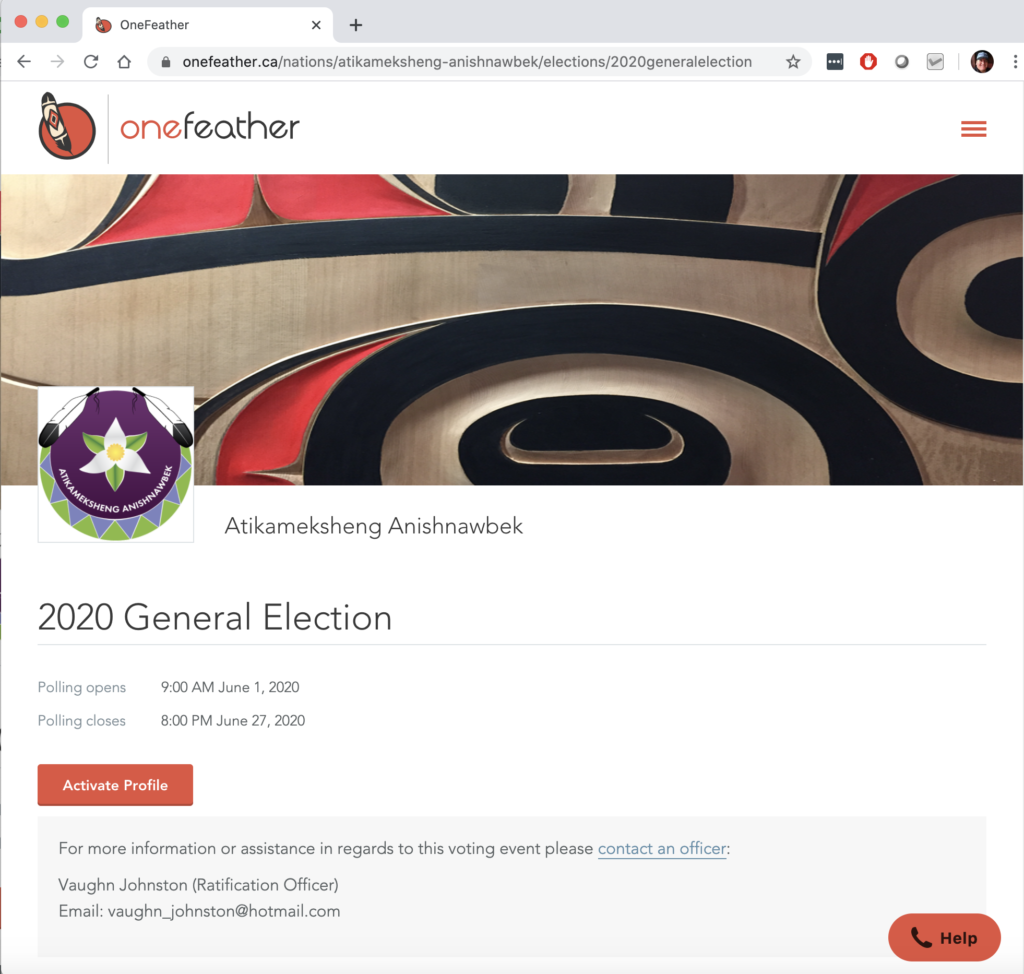
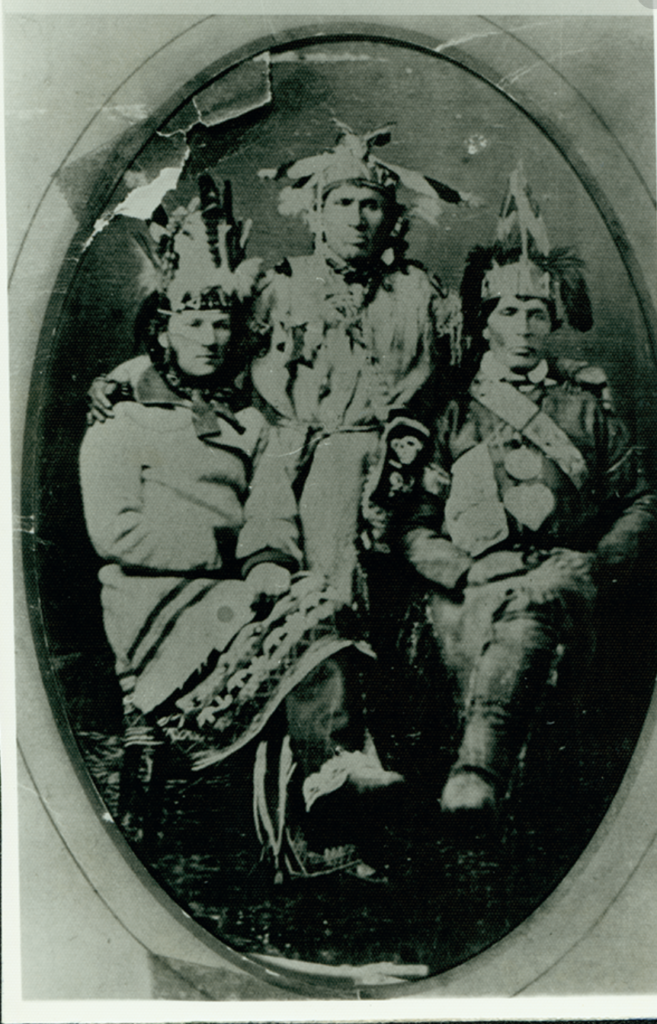
A Path to Self-Determination
Circa 1850: Chief Shawenekezhik, on behalf of the Atikameksheng Anishnawbek signed the Robinson-Huron Treaty. This is proof positive that Atikameksheng had the right to self-determination, had self-government and the right to select their leaders their own way.
Circa 1876: With the imposition of the Indian Act in 1876, the rights of our ancestors and our people were in question. Our way of selecting our leadership was taken away.
Circa 2020: We are taking an active and historic step in re-asserting our jurisdiction. Atikameksheng is proceeding with our first vote under our own jurisdiction – our way.
What else does the future hold for Atikameksheng self-determination?
Share your thoughts on Facebook or Twitter using #OurElectionOurWay
You set this in motion.
This election is made possible by two guiding documents:
- Atikameksheng G‘Chi-Naaknigewin, our constitution and highest law of our people; and
- Gimaakeng Naaknigewin, our election code.
Through the vision leadership of our past Chiefs and Council, the guidance of our Elders and the hard work of Band staff, and your votes of ratification, these two documents are now living and breathing articles of self-determination and self-government.
The election code spells out the definition of office for Gimaa and Council, length of terms, who is eligible for election and the process that the election will take including nomination meetings and conduct of election. It also enables online electronic voting for the first time in our history.


Attention Atikameksheng Citizens: Action Required!
Posted June 25, 2020
The polls for the Atikamekshek Anishnawbek have been open for 25 days. We are now down to crunch time! We’re in the final few hours before we select a new Gimaa and Council in the 2020 Election.
This is an important call to action.
If you haven’t yet done so, please vote now.
- ONLINE, ELECTRONIC VOTING: If you do not know how to vote, there are instructions here including an informative step-by-step video. Join your fellow citizens have already cast their vote through online, electronic ballot.
- AT THE POLLING STATION: If you do not have a computer or smart phone, internet nor access to email, you can vote at the polling station on election day.
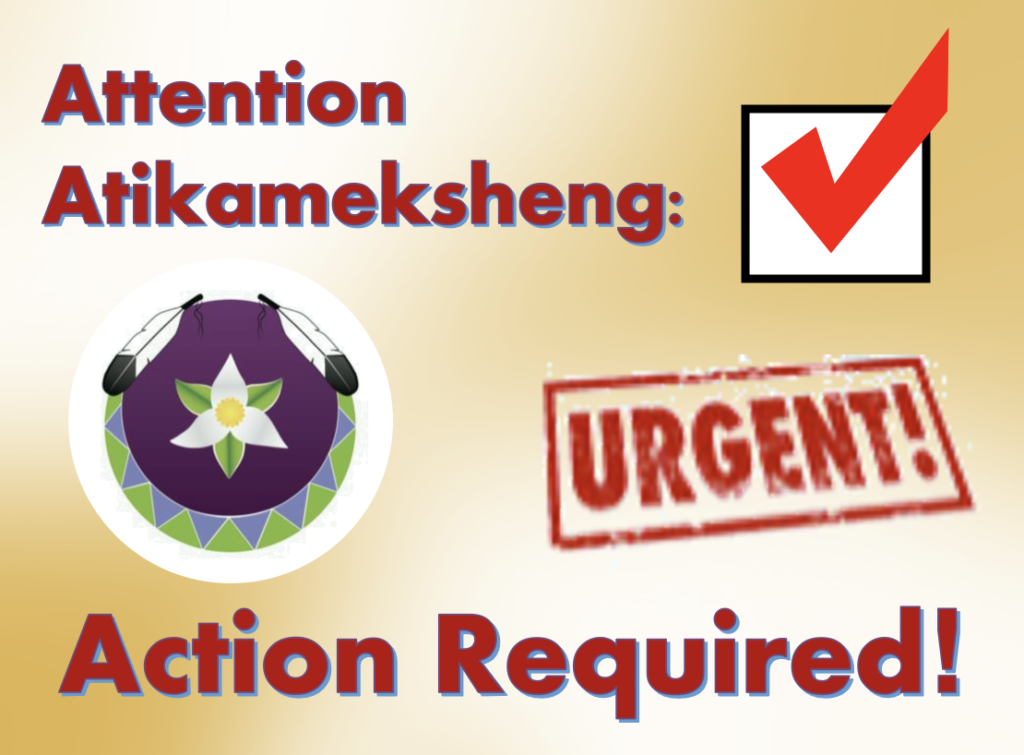
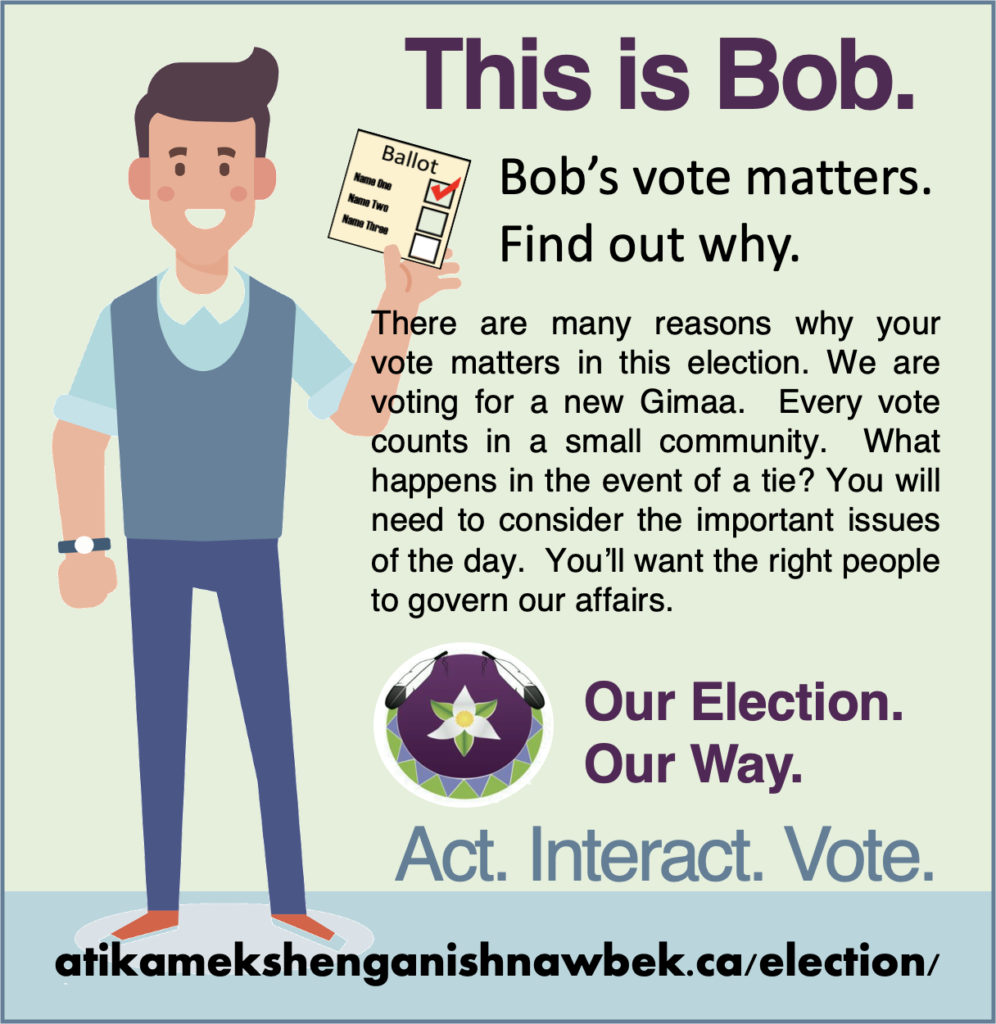
NEW! Why you vote really matters
Posted June 23, 2020
If there is one enduring virtue of democracy it is the periodic check-and-balance that is fundamental to an accountable government – the election. Inevitably, the electorate will go back to the polls to choose the person or persons that will oversee their governance.
Politicians will come and go. But voters will stand in line, battle the elements and fight for their right to vote and have done so for generations. But why does your vote really matter?
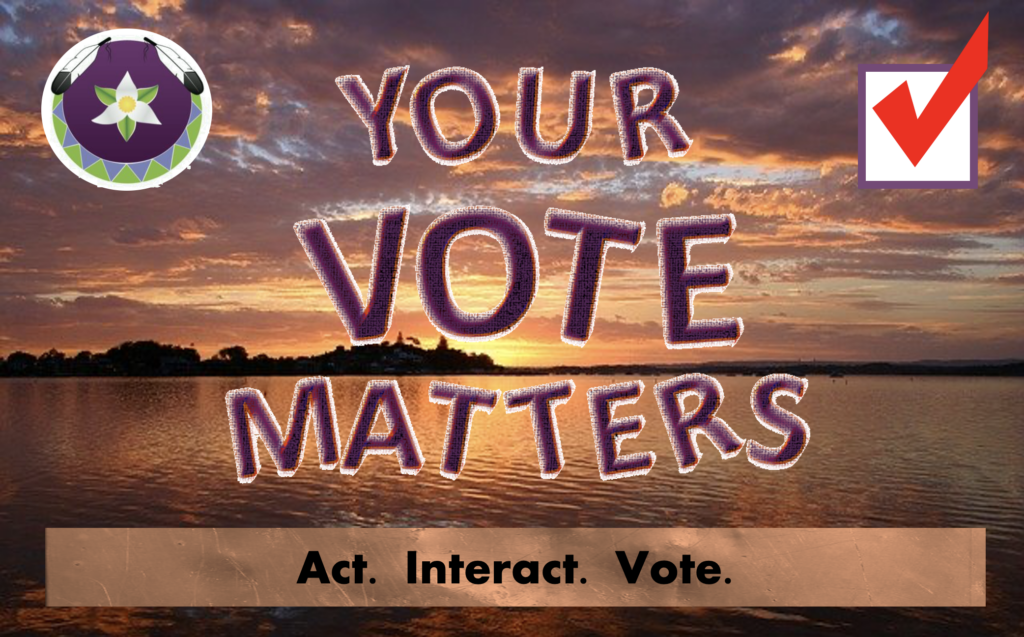
Read more Election Updates

Read more Election Questions and Answers.
Do you have a question about the Election, the election code or how to vote?
Send your questions via Facebook, or Twitter by tagging #OurElectionOurWay or email: communications@wlfn.com.
| Question: How do I vote? | Answer: There are three ways to vote in the election: 1. Online (Electronic) Voting: Voting is open now. 2. Mail-in Ballot: Your ballot package will be mailed out on May 28, 2020 or sooner. 3. At the polling station, the Atikameksheng Community Centre on election day, June 27, 2020. Visit here for full step-by-step voting instructions. Visit the Election Notices page. |
| NEW! Question: I thought long about my vote only to come realize I don’t have a status card yet. I am eligible to vote? | Answer: You can certainly vote at the polling station on election day. Simply bring another form of identification with you. If you are newly minted Band member and have your letter of registration, or lost your status card but know your 10-digit Indian Status registry number, you may still be able to register for the online, electronic ballot through OneFeather. You will need to input your name, your 10-digit registry number, and your date of birth. Registration also requires your own email address. See How do I vote? If you have any questions, please contact the electoral officer as soon as possible by calling: Cell/Text: 705-849-8072 or email: Vaughn Johnston vaughn_johnston@hotmail.comor email Luanne Naponse lunaponse@yahoo.ca. |
| NEW! Question: I’m concerned that there is such a small percentage coming out to vote, pass laws and make important community decisions. How can we begin to address this? | Answer: Voter apathy is a challenge in every election or ratification vote. Especially when these votes happen more often these days. One solution is simple: As a community, we need to increase and improve the voter turnout. The more citizens that vote, the more they are empowered in community decision-making. That’s one reasons why we created the #OurElectionOurWay campaign to encourage Atikameksheng citizens to Act, Interact, and most importantly… Vote. |
| NEW! Question: “The Atikameksheng Electorate statistics infographic is getting a lot of attention. Where did you get those numbers?” | Answer: According to the Electoral Officer as of June 22, 2020, there were 155 total voters so far. A week ago, that number was at 101 voters. That’s an increase of 34 per cent. In 2018, a total of 276 ballots were cast in the election. Which means we’ve already achieved 56 percent of the total votes case in 2018. Great job, Atikameksheng! Let’s make those numbers soar. Vote online now. |
| Question: “What happens in the event of a tie?” | Answer: It’s a good thing this doesn’t happen very often. Section 15 (q) of the Gimaakeng Naaknigewin (election code) states that in the event of a tie for Gimaa or for the final position of Councillor, the Electoral Officer shall use the “lot system” to pick the successful candidate. In other words, the names of the two or more candidates who are tied will be placed into a hat, and one name will be drawn by the Electoral Officer. |
| Question: “How many people voted in the election so far?” | Answer: For those of you who like numbers, as of June 22, 2020, a total of 155 people have vote in this election. More are expected to vote online every day. So far, we have already surpassed over 56% of the total ballots cast compared to the last election. |
| Question: What is the new election appeal process? | Answer: According to the Gimaakeng Naaknigewin (election code), thirty days after an election, any candidate or eligible voter who voted in the election may submit a written appeal of the results. They will need to demonstrate reasonable grounds that certain factors may have affected the outcome of the election, including one or more of the following: a) a candidate having been elected who was not eligible to be a candidate, and/or b) a person or persons having voted who were not eligible to vote and that the vote or votes cast by those ineligible persons could have made a difference in the election results and/or (c) the secrecy guaranteed of the process was compromised and/or (d) there was a violation of the election code, and/or (e) any other grounds that are deemed by the Atikameksheng Anishnawbek Appeals Board as compromising a fair electoral process. The appellant, the Electoral Officer and candidates in the election shall have 14 days to respond or provide any information to an Appeal Board convened to examine and ultimately decide upon the appeal. The Appeal Board shall make a decision within twenty-one days of receiving the appeal and provide a formal written report to the community. |
| Question: I won’t be able to vote at the polling station on election day and am unable to vote online. How can I vote? | Answer: If you don’t have a mail-in ballot package, or are unable to vote at the polling station, our Deputy Electoral Officer can sign out a special ballot to an eligible voter if needed. This gives voters some additional flexibility in exceptional circumstances. However, the voter will need to pick the mail-in ballot in person. If the voter is unable to leave home, that voter must request the ballot personally and appoint a specific individual to pick up the ballot for them. If you wish to request a special ballot, contact Luanna Naponse, Deputy Electoral Officer can be reached by email: lunaponse@yahoo.ca. |
Read more Election Questions and Answers.
Act.
- Learn more about the Election.
- Sign up for the Members Portal.
- See the Election Notices.
Interact.
Use hashtag #OurElectionOurWay
